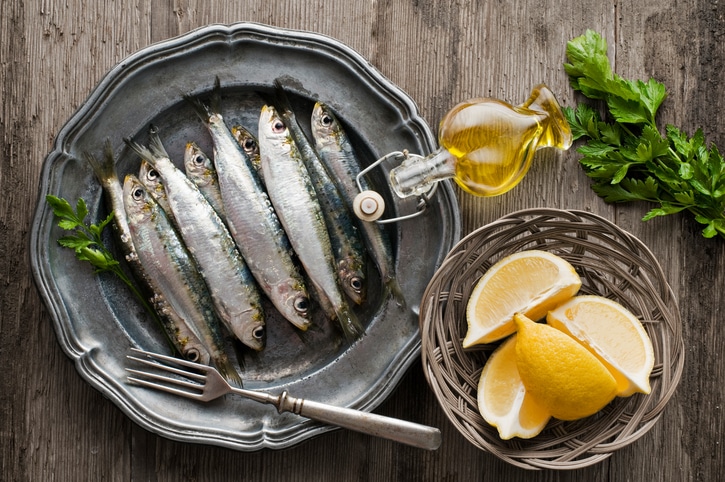Editor’s Note: We are happy to announce that world-renowned brain health expert Dr. Paul Nussbaum is joining our team at The Institute for Natural Healing.
He is an adjunct professor in neurological surgery at the University of Pittsburgh School of Medicine. Dr. Nussbaum’s groundbreaking work was recently featured in The New York Times.
Watch your inbox in the coming weeks for Dr. Nussbaum’s advice on how to prevent brain aging and keep your mind sharp.
By Dr. Paul Nussbaum
The health field is full of popular myths that have no basis in reality.
Here are ones you’ve likely heard:
- You use only 10% of your brain.
- Chewing gum stays in your stomach for seven years.
- A dog’s mouth is cleaner than a human’s.
- Eggs give you high cholesterol.
None of these are true. But they have been repeated so often over the years that people have come to believe them.
However, there are times when folklore is right.
For example, you’ve probably heard that fish is “brain food.” In this case, both science and experience show that this conventional wisdom is true.
Fish are perhaps the best source of omega-3 fatty acids. These compounds are vital to brain health because they help brain cells (neurons) communicate. Your body can’t make omega-3s on its own. You are reliant on your diet to provide them. That’s why eating fish can be so important to cognition.
Recommended for You: The “Better Than Resveratrol” Secret to Anti-Aging
In early studies, it appears that anything resveratrol may help do for your health–keeping cells healthy…arteries clear…blood flowing easily…sugars in balance…and mental function clear and sharp–this one “miracle compound” does just a little bit better.
What is it and how could it help you look and feel years younger? Find out HERE.
Neurons are surrounded by an insulating sheath of myelin that helps them communicate. Myelin is composed of 70% fat. DHA (docosahexaenoic acid) is the specific omega-3 fatty acid that is important for healthy myelin.
Myelin allows us to think more quickly, have better memory, nimbler dexterity, sharper vision, more energy…it affects a wide range of functions.
That’s some of the science. Here’s what we know from the experience of history…
Human civilizations had their greatest periods of development when living and working near water. One reason may be that the water provided for a greater consumption of fatty fish, which contain the omega-3s that nurture the brain and permit it to perform at its intellectual best.
The Brain-Boosting Secret of Socrates and Plato
Consider all the great achievements of our ancestors who lived near the Euphrates and Nile rivers and the Mediterranean Sea:1
- The ancient Egyptians invented paper, rope, and tools that allowed large-scale farming. Their advanced engineering allowed them to build the Giza pyramids, which have stood for 5,000 years.
- The Phoenicians invented a practical alphabet.
- The ancient Greeks were second to none in the fields of mathematics, medicine, philosophy, and literature. We still refer to the ideas of Socrates and Plato.
- The Persian empire spawned the world’s first road system, sewers, and advanced chemistry.
- The Romans invented our modern calendar and the concrete that we would eventually use for our contemporary buildings. They were great innovators in law, art, and architecture.2
These are just a few examples. The list goes on and on. The lore about fish helping us think better is true.
Try to eat about 8 ounces of fish every week. The best choices are wild-caught salmon, mackerel, herring, and sardines. Some deep-water fish are not recommended because they eat smaller fish, and mercury can accumulate in their flesh. Mercury is a potent neurotoxin. Fish that tend to be high in mercury include swordfish, shark, marlin, orange roughy, and Gulf tilefish.
What if you don’t like fish? They may be the best way to get brain-healthy omega-3s, but they’re not the only way. You can get them in smaller amounts from nuts, seeds, avocados, organic eggs, and olive oil.
I am a big proponent of getting proper nutrition through food. But another option is to take a fish oil pill. Look for products made without fillers. And talk to your doctor before you take them.
Like this Article? Forward this article here or Share on Facebook.
References:
1http://www.thetoptens.com/greatest-civilizations/
2http://www.history.com/news/history-lists/10-innovations-that-built-ancient-rome

